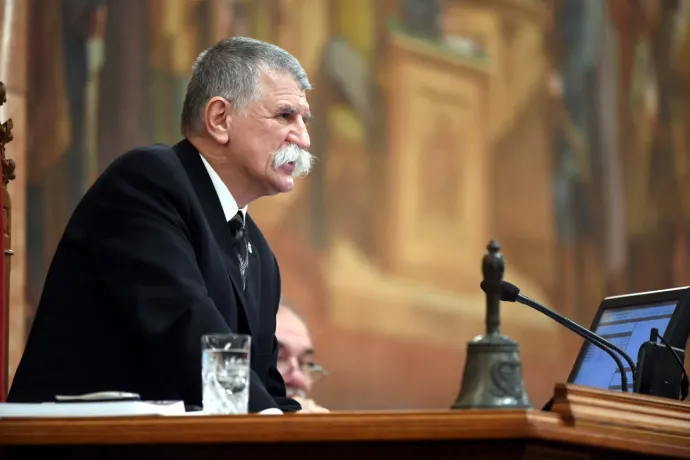
For the past year and a half, the Hungarian Parliament has failed to vote on Sweden's admission to NATO, leaving Hungary as the last member state which has not ratified the Scandinavian country's accession. The government submitted the proposal to parliament in July 2022, but House Speaker László Kövér has to date failed to put the proposal on the agenda. At first, the official reason given for the delay was that there was a dispute within Fidesz's parliamentary group, while more recently, the group’s position has been that they will wait for the Swedish Prime Minister's visit to Budapest.
As President, Katalin Novák has on several occasions urged Parliament to endorse Sweden's accession to NATO. However, after her recent resignation, the presidency will be temporarily taken over by House Speaker László Kövér, who has openly opposed the Scandinavian country's admission to the military alliance. The proposal could easily be placed on the agenda in Parliament before the new president takes office at the end of March, but Kövér will have another tool to drag the matter out.
As long as Kövér is interim President, Hungary's Fundamental Law does not allow him to exercise his rights as a Member of Parliament, and one of the Vice-Presidents of Parliament will assume his duties as Speaker. The National Assembly currently has four vice-presidents from the governing coalition and two from the opposition:
- Csaba Hende, Fidesz MP from Szombathely, chairman of the legislative committee;
- István Jakab, President of the National Association of Hungarian Farmers' Organizations and Cooperatives (Magosz), Fidesz Member of Parliament;
- János Latorcai, Member of KDNP, and the most senior member of the National Assembly;
- Sándor Lezsák, President of the National Forum Association, Fidesz MP from Kiskunfélegyháza;
- Dúró Dóra, vice-president and deputy parliamentary group leader of Mi Hazánk and
- Lajos Oláh, DK Member of Parliament for Erzsébetváros-Terézváros.
But what significance does the person of the interim speaker have with regard to Sweden's accession to NATO? The agenda for the sessions of parliament is drawn up by the faction leaders in a committee chaired by the Speaker. If the committee fails to reach a full consensus – which has not happened in recent years – it is the Speaker who proposes the agenda to Parliament, which is then adopted during the plenary session.
For the past year and a half, László Kövér has not included Sweden's accession to NATO on the parliament's agenda, and during this time he has often stated that he personally does not support the Scandinavian country's admission to the military alliance. "The Swedes – and I would like to note that the Finns as well – went so far in denigrating Hungary, in disparaging its democratically elected government and in restricting the room for manoeuvre that we cannot pretend it didn't happen, or that it was a minor circumstance", he said in an interview a few weeks ago, after the Turkish parliament voted in favour of Sweden's NATO membership.
The coming weeks will show whether the interim speaker will have any sovereignty and whether he/she will include the government's proposal on the agenda.
It would be particularly interesting if Csaba Hende were to replace Kövér, because he was the one who – as chairman of the legislative committee – led the Hungarian delegation that travelled to Sweden and Finland last year to settle the alleged disputes. Speaking to the media after the talks in Stockholm, Hende said he was satisfied with their meetings, and added that the delegation supported the Swedish accession.
Just a few weeks ago, Orbán promised that he would urge Parliament to vote in favour of Sweden's membership in the military alliance at the earliest opportunity. The soonest opportunity to do so will be at the sitting set to begin 26 February.
Even if Parliament does finally vote in favour of the proposal, as interim President, László Kövér will still have the opportunity to stall the process, because a law only enters into force once it has been signed by the head of state. If he disagrees with the law or any of its provisions, he can send it back to Parliament for further consideration before signing it. In this case, Parliament must hold another debate and vote on the law again. And if the Head of State considers a law to be contrary to the Fundamental Law, prior to signing it, he or she can forward it to the Constitutional Court, which reviews whether the law is in line with the Fundamental Law.
The new President is not expected to take office until the end of March. If Kövér sticks to his position, it may still be a while before Hungary approves Sweden's accession to NATO.
For more quick, accurate and impartial news from and about Hungary, subscribe to the Telex English newsletter!